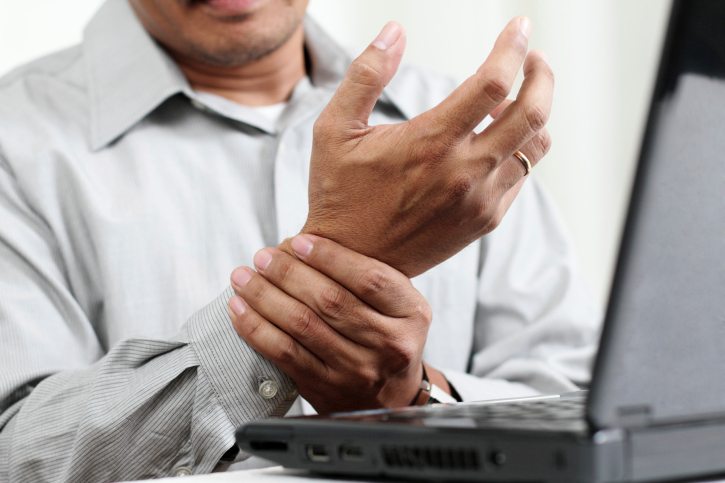It’s often thought that as our bodies get older, we become more prone to weakness and injury. While this certainly may be the case in older individuals, even young men and women are susceptible to the most prevalent orthopedic issues. Some may be hereditary while others can result from various lifestyle choices. Here are some of the most common orthopedic issues and what you can do to help treat/prevent them.
Arthritis
One of the most prevalent orthopedic issues found is arthritis. While there are varying forms of the condition, osteoarthritis and rheumatoid arthritis are the two most common found in adults. Osteoarthritis primarily focuses on the spine, knees, hips, hands and feet. Rheumatoid arthritis can not only affect the body’s joints but it can also cause issues with the heart, lungs, eyes, skin and other vital organs, making it one of the most disabling types of arthritis.
While arthritis is not always preventable due to family history or predisposition, there are certain steps that can be taken to help offset the disease. Healthy habits like weight management, exercise, scheduling regular doctor appointments and eating healthy all contribute to its prevention.
Sports Injuries
As we looked at last month, there are quite a few sports-related injuries that athletes can experience. Ideally, the best medicine is prevention. Once an injury has been incurred, it’s difficult to recovery from completely. Always stretching properly pre-workout or prior to a game is crucial. Also, even when complete, a cool-down stretch is important to allow your muscles to gain the flexibility they need while they’re warm and active. Utilizing the proper sports equipment and not pushing yourself past your own limitations will help keep sports injuries at bay.
Carpal Tunnel Syndrome
In the world of typing and computer processing, carpal tunnel has become more and more common with adults and children. Carpal tunnel syndrome refers to excess pressure on the wrist’s median nerve, which supplies both movement and feeling to the fingers and hand. Common symptoms include numbness of the hand and fingers, weakness and tingling in various areas of the hand.
Providing yourself ergonomic tools while on the job or home, such as specially-designed ergonomic keyboards or wrist pads, will significantly help fight against the onset of carpal tunnel.
Osteoporosis
A disease that primarily affects bone and bone-density, osteoporosis is difficult to detect due to the fact that there are no symptoms for someone suffering from it. Yet, resulting broken bones can not only be debilitating, they can also be life-threatening.
Regular physician visits can help prevent osteoporosis along with strong, weight-bearing exercise and plenty of calcium and Vitamin D in your diet. Activity level is especially important as the body is developing early in life, especially for women.
If you suffer from any of the above orthopedic issues or simply want to help prevent the onset later on in life, our orthopedic specialists at Methodist McKinney Hospital are happy to help you feel your best. There are also numerous support groups to help deal with the frustration and mental anguish of these injuries and diseases. Listed below are some examples for peer support:


3 Comments
I hurt my foot pretty bad boxing a couple days ago and I may have to go to an orthopedic surgeon. It would have been wise if I stretched more like you mention in the article. I will need to make sure to start stretching better when I recover.
I didn’t know that for carpel tunnel, you should see a orthopedic doctor. I’ve had many symptoms of carpel tunnel, so it would probably be beneficial for me to find a doctor. Thank you for sharing!
You are so welcome! For carpal tunnel, look for an orthopedic surgeon who specializes in hands, wrists and elbows—sometimes called a hand surgeon. While orthopedic doctors are called “orthopedic surgeons,” not all carpal tunnel treatment involves surgery. In fact, carpal tunnel is often treated without surgery.